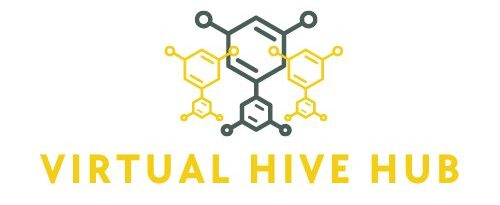Working from home brings benefits like flexibility, comfort, and control over your day. But, it also means adapting continuously and maintaining a new level of professionalism. To excel in your career from afar, it’s crucial to keep up with your field. Here are key strategies to stay sharp and relevant.
In the world of remote work, it’s not enough just to be there. You need to be ready, informed, and always growing. You have to create a space of excellence, where being far doesn’t mean lower standards. With new updates in remote work, you’ll discover tools to boost productivity and maintain professional habits at home.
Key Takeaways
- Understand the importance of professionalism in a remote setting to remain competitive in your field.
- Embrace the continuous learning curve by incorporating latest remote work updates into your daily routine.
- Explore the necessity of creating a workspace that aids in staying current in the remote industry.
- Identify key strategies for how to stay up-to-date in your remote field to optimize productivity and growth.
- Discover how to leverage remote industry insights to maintain your professional edge.
Embracing the Paradigm Shift to Remote Work
The move to remote work marks a big change. It redefines what being professional means, now away from the office. You are part of a vital switch. Remote career development strategies and remote field advancements are key to your success and ability to adapt. Knowing and using the features of your digital workplace is key.
Remote work is more than just working from any place. It’s about creating a balance between being productive and staying well. Here are clear steps to grow in the remote setting:
- Regularly update your technical skills to keep pace with remote field advancements.
- Adopt collaboration tools that facilitate seamless teamwork and clear communication.
- Build a professional network that supports your development in the remote work arena.
- Implement time management techniques geared towards maximizing efficiency.
Adopting these strategies helps you not just adjust but excel in remote work. This way, you ensure your growth and shape your career path.
Creating Your Optimal Remote Workspace
Setting up a special workspace helps you focus and succeed in remote jobs. It should be a quiet spot where you can concentrate. Here, you can access materials to improve your skills. This place is key for growing professionally, especially when learning new things.
Strategic Location to Minimize Distractions
Pick a spot in your home away from noise and interruptions. A quiet corner or a room with a door is ideal. It helps separate work from home life, boosting your focus.
Essential Tools and Ergonomics
Your workspace needs a computer, fast internet, and ergonomic furniture to avoid strain. Good ergonomics keep you productive and healthy in fast-paced remote jobs.
| Workspace Component | Role in Professionalism | Resources for Optimization |
|---|---|---|
| Ergonomic Chair | Enhances posture and focus | Physical health webinars, Ergonomic product reviews |
| Desirable Lighting | Reduces eye strain and maintains alertness | Articles on workspace lighting arrangements |
| Dual Monitors | Amplifies efficiency with extended display | Productivity podcasts, Tech setup guides |
| Noise-Cancelling Headphones | Mitigates auditory distractions | Equipment review blogs, Audio-tech tutorials |
Adding these parts to your remote work setup shows you’re serious about performing well. It also means you’re keen on growing and keeping up with changes in remote work. Constantly improving and learning new skills keeps you competitive and sharp.
How to Stay Up-to-Date in Your Remote Field
To grow in your remote career, exploring remote work skill-building opportunities is key. These can broaden your skills. Online learning lets you improve at your own pace while managing your schedule. It’s important to learn new skills and stay updated on remote work updates.
To keep developing, find resources for comprehensive learning. This might mean joining webinars, interactive workshops, or virtual conferences. These events teach you and connect you with mentors and peers in remote work.
- Seek out web-based courses that align with your career goals
- Regularly attend webinars and workshops to learn from industry leaders
- Engage in mentorship programs to gain insights from experienced professionals
- Subscribe to newsletters and portals dedicated to remote work updates
- Invest time in developing soft skills crucial for remote collaboration
Staying updated means using smart tools in your daily tasks. Time management apps can boost your productivity. This approach lets you focus on learning without losing track of work. The aim is to enhance both work performance and learning.
Adapting to a fast-changing job market has never been so vital. With remote work shaping our careers, you must guide your own development. Embracing remote work skill-building opportunities prepares you for a flexible and rewarding future.
Remote Work Attire: Dressing for Success
The line between comfy home wear and work-professional outfits is fuzzy in remote work. Dressing well is key for staying relevant in remote work and excelling in remote career development strategies. It’s not just about looking sharp. It’s about feeling ready, being disciplined, and showing seriousness about your career, even if you’re just at home.
The Psychology of Business Casual in Remote Work
Wearing business casual at home boosts a work-ready mindset. It gets you in the zone to work hard and professionally. Dressing up helps you mentally switch from “home mode” to “work mode.” It shows you’re serious about performing well and staying relevant in remote work.
This approach also boosts confidence during video calls, dealings with clients, and teamwork. It really helps to make a clear difference between working hours and relaxing time.
Impromptu Video Calls: Staying Video-Ready
Today, being ready for unexpected video calls is essential. Your wardrobe needs to be comfy yet suitable for any surprise meetings. Keeping a business-like appearance boosts credibility and shows you’re always prepared. This sets the stage for effective online talks and career advancements.
| Tips for Staying Video-Ready | Benefits |
|---|---|
| Maintain a selection of business casual tops within reach | Ensures a professional image even on short notice |
| Invest in good lighting and a high-quality webcam | Enhances visual communication and professionalism during video calls |
| Arrange your workspace background to reflect a professional setting | Communicates a dedicated and organized work environment |
A disciplined approach to remote work attire is crucial for a strong remote career. With evolving tech and work culture, being able to switch between home and work life is vital. Remember these strategies in your routine. They’ll help you lead in remote career development strategies and succeed in your job.
Setting Clear Boundaries for Work-Life Balance
In the world of remote work, it’s vital to set strict boundaries between home and work. These limits help keep a professional mindset and are key for our well-being. We’ll discuss how to share your schedule clearly and create habits that boost productivity and relaxation.
Communicating Your Work Hours
Being open about your work hours is crucial in the remote industry. Letting people know when you’re available stops them from bothering you when you need to focus. Use digital calendars and messages to tell others when you’re working. This helps maintain your professional space.
Creating Routines to Transition Into and Out of Work Mode
Having routines helps you switch between work and personal life. This prevents them from overlapping too much. Maybe start your day with coffee before emails, or exercise after work to unwind. These practices help keep work and home life separate, letting you manage remote work updates more effectively.
By doing these things, you’re not just keeping up with the remote industry; you’re also looking after your health. As remote work grows, setting these boundaries is critical for a balanced work life.
Mastering Communication in a Virtual Landscape
In the world of remote work, good communication is more than talking. It’s about making a space where ideas can flow. This ensures you keep up with remote field advancements and stay relevant. In digital spaces, how you express and listen is as important as a handshake in person.
Good remote work begins by knowing your team and the tools you use. Whether it’s apps for managing projects or video calls, knowing these tools is key. The goal is to share your message clearly, avoiding misunderstandings that happen without face-to-face contact.
- Regular Check-Ins: Have daily or weekly meetings to keep in touch and on track.
- Feedback Loops: Promote open and positive feedback to build trust and growth.
- Cultural Sensitivity: Remember time zones and cultural differences in your communications.
We, as remote workers, need to learn new tools and improve our soft skills to keep strong work relationships. Regular meetings and feedback are essential. They help create a clear and trusting work environment in the remote setting.
Developing a communication plan is key in staying relevant in remote work. Consider this:
| Communication Channel | Purpose | Benefit |
|---|---|---|
| Formal updates and documentation | Clarity and reference | |
| Instant Messaging | Quick questions and updates | Fast and convenient |
| Video Calls | Team meetings and deep talks | Personal touch and focus |
| Collaborative Documents | Working together in real-time | Teamwork and active input |
Remember, communication in digital spaces is constantly changing, linked to remote field advancements. By using these methods well, you’re not just part of the talk; you’re leading it. Being a strong communicator also means being seen as a leader. So, mastering these skills is crucial for success in remote work.

Time Management and Punctuality in Remote Work
In remote work, time management and punctuality are key. They show how professional you are. Good time management means being productive and respecting everyone’s schedules, even across time zones.
To do well in remote work, find great remote job training resources. Learning how to stay up-to-date in your remote field is crucial. It helps you work better with your team and keeps you current with industry news.
Respecting Time Zones and Schedules
Working with a global team means knowing time zones. This knowledge helps plan meetings that fit everyone’s schedules. It’s polite and makes working together smoother.
Tools for Time Management and Organization
Many digital tools help remote workers stay organized. Use Trello for teamwork, Todoist for tasks, and RescueTime to see how you spend your time. Here’s a brief look:
| Tool | Functionality | Benefit |
|---|---|---|
| Trello | Project Management and Team Collaboration | Visual boards to organize tasks and projects efficiently |
| Todoist | Task Tracking and Management | Simple interface to prioritize daily tasks and set reminders |
| RescueTime | Productivity and Time Tracking | Tracks time spent on applications and websites, offering detailed reports on your activity |
Using these tools and strategies can boost your efficiency. It’s not just about keeping up. It’s setting a work rhythm that keeps you vital in a virtual team.
Taking Initiative: Proactive Strategies for Remote Professionals
Working remotely means you have to focus on remote career development strategies. The physical office is gone, but your impact and mindset can still stand out. Think about focusing on continuing education for remote professions. It shows you’re serious about growing and being excellent.

Being proactive is more than just reacting—it’s starting things on your own. You can push your career up by joining new projects and bringing new ideas. This makes you an important member of your team. It also proves you’re good at adding to remote career development strategies.
Key Areas of Development
- Leadership and management skills are critical for leading teams well in a virtual environment.
- Staying up-to-date with technology helps you work better with your team, no matter where you are.
- Being adaptable shows you can handle changes and challenges with ease.
| Development Area | Strategies for Growth | Resources for Continuing Education |
|---|---|---|
| Leadership | Engage in mentorship, take on project management roles. | Webinars, online certification courses. |
| Technical Skills | Participate in online training for new software relevant to your field. | Subscription-based online learning platforms. |
| Critical Thinking | Solve complex problems and innovate within your role. | Interactive workshops, think tanks, and industry forums. |
Developing a remote career development strategy means focusing on continuing education for remote professions. Take every chance to learn, whether it’s through courses or just talking with peers. This is how you grow as a remote professional. By learning and then doing, you keep your skills sharp and can adapt to changes in remote work.
Continuous Learning: Investing in Your Professional Development
Starting a continuous learning journey doesn’t just boost your skills. It keeps you ahead in the fast-changing remote work world. Keeping up with the industry is crucial, and learning new things prepares you for future challenges.
One top way to grow professionally is through online courses aimed at remote workers. These courses offer clear ways to learn what you need for your job. It’s important to choose courses that match the latest industry trends and skills in demand.
Online Courses and Remote Skill-Building Opportunities
The internet is packed with resources for improving or learning new skills. Platforms like Coursera, Udemy, and LinkedIn Learning have many courses designed for remote workers. By taking these courses, you can sharpen your skills and learn about new areas.
Mentorship and Networking in a Remote Setting
Even though remote work means distance, it shouldn’t stop you from making valuable professional connections. Mentorship and networking from afar are incredibly important. Using Slack and attending virtual webinars lets you meet and talk with peers and leaders. These connections can lead to new insights and strengthen your place in the remote work field.
In conclusion, actively improving your skills and networking sets you up to excel in remote work. Your commitment to never stop learning shows you’re dedicated to leading in the changing world of remote work.
Conclusion
In today’s remote work world, having the right strategies is essential. Remember, achieving greatness is a continuous journey that needs adaptability. To keep up with remote work trends, you need to build a productive work environment.
It’s also vital to keep learning and improve your communication and organizational skills. This will ensure your skills match the latest trends in remote work.
Maintaining work-life balance is crucial for both your happiness and your professional image. By setting clear boundaries, you take care of your well-being and boost your work integrity. As you deal with remote work challenges, these strategies will keep you stable. They let you navigate smoothly through changing industry trends. Stay open to change and be proactive about your growth.
To stay relevant professionally, you must keep pushing, planning, and be willing to grow. Update your skills, use the latest remote work tips, and make your virtual workspace efficient. This lays the foundation for a flourishing career. Use this knowledge to keep up-to-date and ready for what’s next. This way, your journey in remote work will be successful and rewarding.
FAQ
How can I ensure that I stay up-to-date in my remote field?
To keep up in your remote field, look for learning chances like online courses and webinars. Keep an eye on industry leaders and groups on social media to get the latest news. Also, go to virtual conferences and sign up for newsletters relevant to your field.
What are some strategies to embrace the shift to remote work and advance my career?
To adapt to remote work, focus on clear communication and improve your online teamwork skills. Be open to new tech and methods. For career growth, try virtual networking and build your online presence. This helps you stay connected and noticeable in your field.
What are the key elements for creating an optimal remote workspace?
Your remote workspace should be in a quiet spot with minimal distractions. It needs to have all the tools you need, fast internet, and comfy furniture. Good organization and time management can also help keep your work smooth and productive.
How can I keep my remote work skills sharp and continue to learn?
Keep learning new remote work skills through online platforms, webinars, and workshops. Stay updated on tech advancements that impact your work. Practice these new abilities in your daily tasks to keep your skills sharp.
Why is business attire important in remote work and how can I be prepared for video calls?
Wearing business casual clothes for remote work can make you feel and look more professional. It’s good for video calls with clients or coworkers. Always have professional wear ready for unexpected meetings. This way, you maintain a professional look.
How do I set and maintain clear work-life balance boundaries while working remotely?
Set your work schedule and let your household know. Create routines for the start and end of your workday. If you can, close your work area at the end of the day. This helps mark the end of work time clearly.
What are the best practices for effective communication in a remote work setting?
Good remote communication means using the right online tools and being clear about what you expect. Answer quickly and check in with your team regularly. These practices make teamwork smoother when working remotely.
How important are time management and punctuality in remote work?
Being on time and managing your schedule well is very important in remote work. Use calendars and scheduling apps to keep track of tasks and deadlines. Schedule calls wisely across time zones. Try methods like the Pomodoro Technique to work more efficiently.
What proactive strategies can I implement as a remote professional?
Be proactive by leading online meetings and suggesting new projects. Help your teammates when they need it. During discussions, share your thoughts and volunteer for extra tasks. This shows your commitment and skills to your team.
What opportunities exist for continuous learning and professional development in remote settings?
There are many ways to keep learning remotely, like online courses and virtual conferences. Look for mentorships. Join professional groups and networking events online. These activities help you build connections in your field from anywhere.




